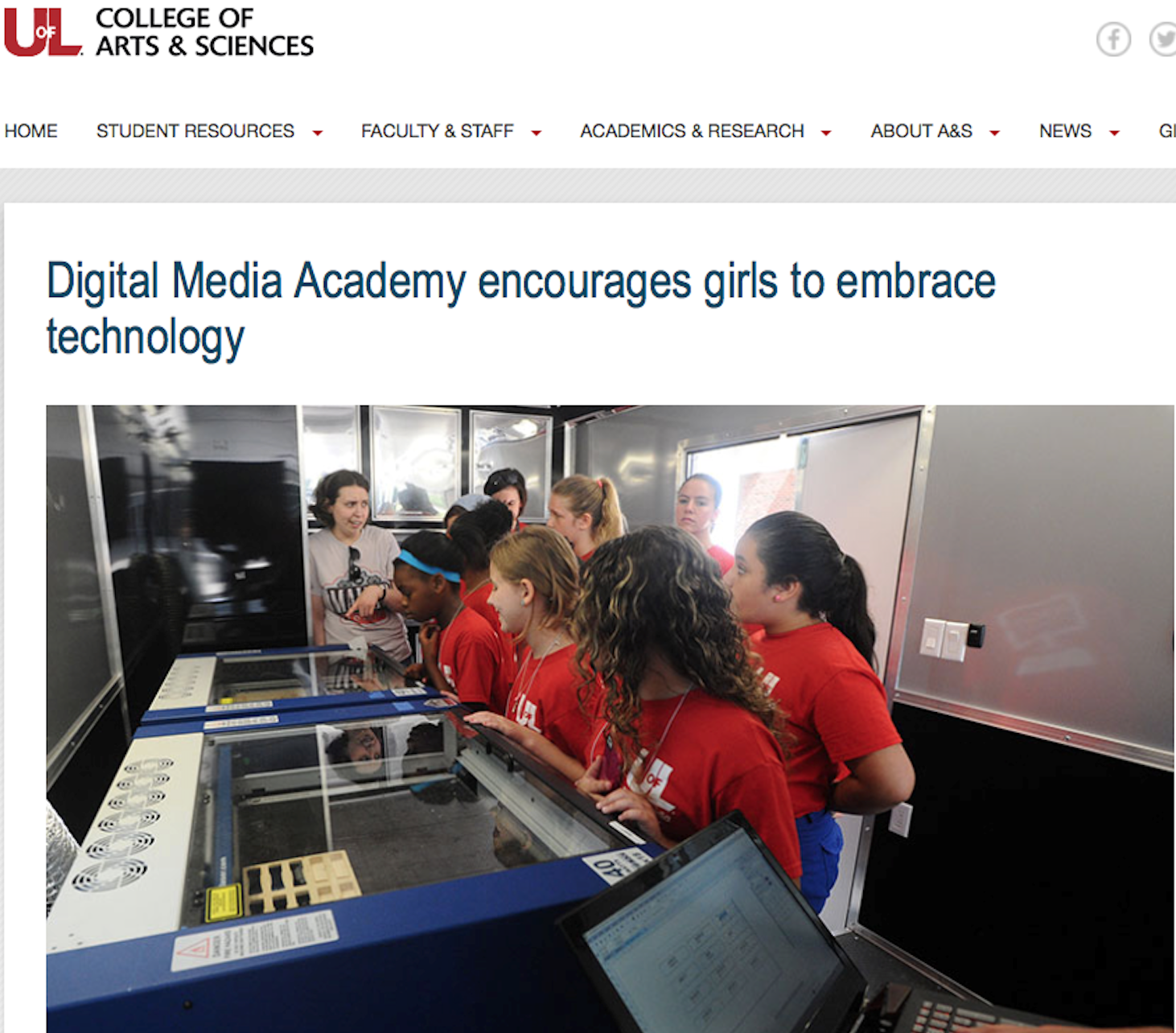Introductions

This June, like many Junes before, I collaborated with University of Louisville graduate students to design and teach the annual Digital Media Academy (DMA)—a two week camp in which rising 6th grade girls from low-performing Jefferson County Public Schools learn to use digital media to participate in conversations they care about. This digital production camp is significant to girls about to start middle school, but DMA also has consequences for other stakeholders, including university administrators who want to justify to city officials, state legislatures, and potential funders that UL is enacting its metropolitan research mission; graduate students who gain access to a community-engaged teaching and research site to explore their disciplinary interests (e.g., in disability studies, computers and writing, graduate enculturation, culturally sustaining pedagogy, multilingual literacy); and, local K–12 groups that seek opportunities for students to avoid the academic “summer slide,” all too common especially in low-income schools.
Beyond serving these immediate stakeholders, DMA functions as a telling example of what matters for those of us in Writing Studies. DMA matters in a colloquial sense, illustrating the type of work we find valuable and how we make that work consequential with, to, and for others. DMA also matters in a methodological sense, illustrating how we study, enact, and materialize our work (e.g., how do we assemble actors and actants, and what frames do we use to gather, analyze, and share that data in meaningful ways?). In this chapter, I use DMA to highlight the assumptions undergirding these two senses of matter/mattering, reflecting what I believe to be a throughline in our field: an ethical stance toward our work—what Karen Barad might call an onto-epistem-ology (that is, the study of situated, entangled practices of knowing that are themselves material practices and have material consequences) in which we take responsibility for making knowledge that helps people understand themselves and their worlds so they can better engage with these worlds.
Such a stance is echoed in many disciplinary subfields, but I come to this conversation historically through feminism and Cultural Historical Activity Theory and most recently through new materialist feminist articulations of disclosure, such as those advanced by Susan Hekman. According to Hekman, disclosure is an intra-active configuration of the world as intelligible. As such, disclosure does not seek to uncover some objective fact but, rather, to understand how reality is made intelligible, and with what consequences. Echoing Foucault’s critical ontology of ourselves, Hekman argues that, since certain disclosures create certain worlds, we are responsible for our role in shaping which disclosures make sense of—and, by extension, encourage—which worlds (127). For Hekman and for me, it is this attention to ethical stances toward consequences and consequentiality that matters. And, while I agree with Hekman that we researchers bear responsibility for participating in conversations and actions with meaningful consequences, I rarely see concrete, in-practice examples of what this lofty call looks like: from design to implementation to uptake. Therefore, in this chapter, I use my work at DMA to illustrate one enactment of this call to promote meaningful consequences.
